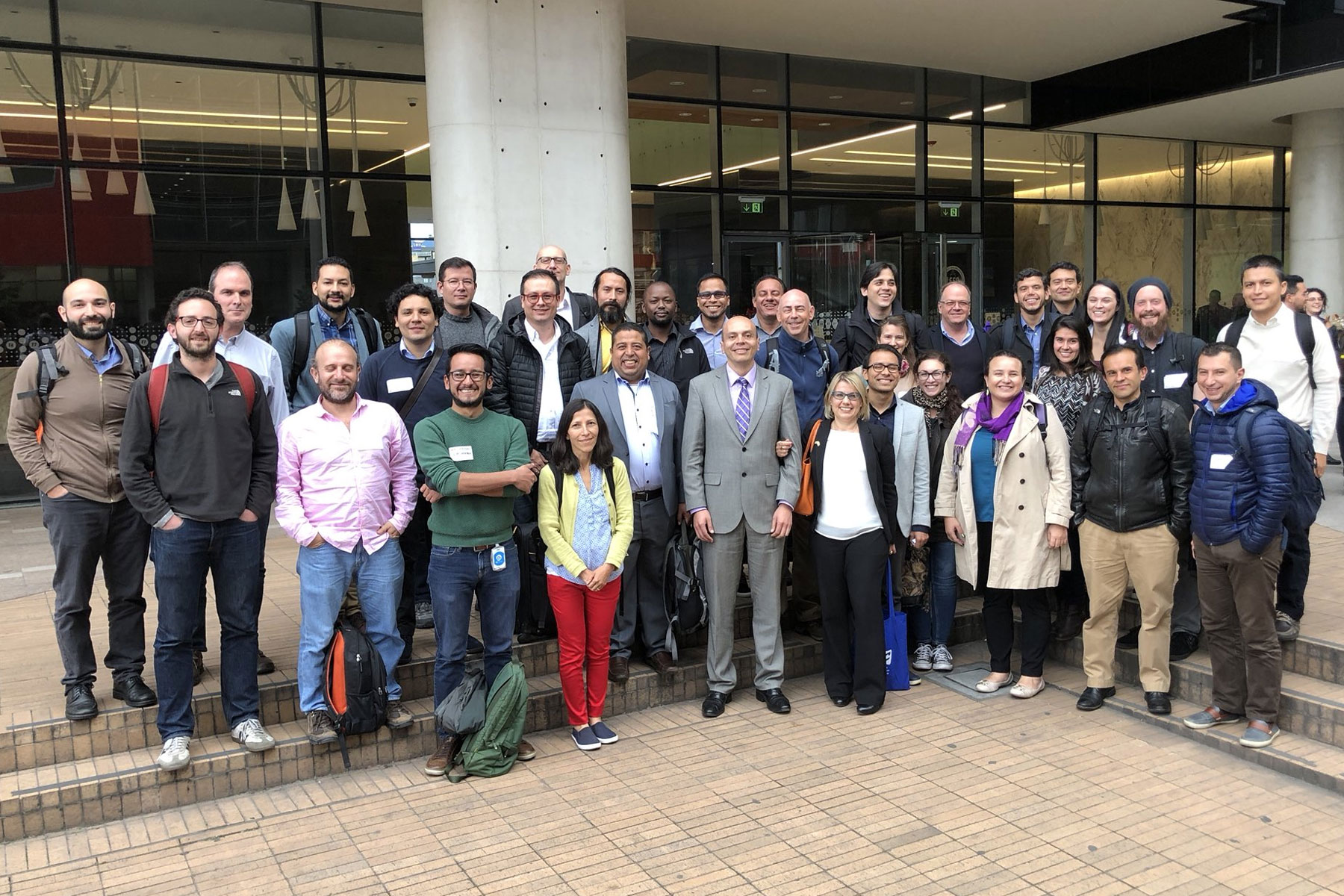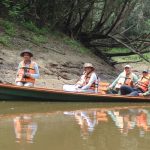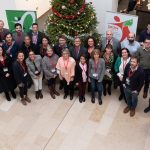
La revolución de los datos para hacer CRECER la bioeconomía colombiana
La biodiversidad de Colombia pronto se revelará con mayor profundidad que nunca, estimulada por un nuevo consorcio que permitirá que el segundo país más megadiverso del mundo ayude a impulsar la revolución de big data.
El consorcio “Biodiversidad C3” , creado por 16 instituciones colombianas líderes, con el apoyo del Earlham Institute, BRIDGE Colombia y GROW Colombia, desarrollarán capacidades en investigación de ciberinfraestructura en un país repleto de información sobre vida silvestre y biológica.
A better understanding of Colombia’s biodiversity on a national scale will drive the growth of the Colombian economy. Over the next few years, enabled by the recent peace agreement, large amounts of data about the megafauna will be collected, and the capacity to share and analyse this information needs to keep pace with the vast wealth of information gleaned from these new explorations.
In June this year, Earlham Institute organised a workshop in Bogotá, Colombia, that brought together important players in the country to design a strategy to develop research cyberinfrastructure that can cope with these needs.
Colombia is a country of stunning beauty and megadiversity; geographically, culturally and biologically. A greater understanding of this biodiversity is not only key to conserving and promoting it, but can also drive economic growth, social equality and a sustainable peace in Colombia, especially now that the FARC rebels have put down their weapons.
Professor Federica Di Palma, coordinator of the BRIDGE Network and EI’s Director of Science, said: “The potential for data to transform how we tackle many of the major challenges faced by humanity, from climate change and environmental sustainability to conservation and food security, is huge. This can only be achieved through greater access to data, enabled through effective and efficient infrastructures – ensuring that we are harnessing the best expertise from all around the world to work on these grand challenges.”
Prof Silvia Restrepo-Restrepo, VC of Research at University of Los Andes, added: “Genomics allows us to understand the potential of this diversity in a more effective, efficient and fast way, in order to move from an economy that relies on non-renewable energy sources to a knowledge-based one. This partnership will catalyze Colombia’s transformation.”
One way of ensuring the efficient and accurate analysis of such abundant data is to cultivate and foster research cyberinfrastructure – advanced shared computing resources along with a community of skilled people who ensure that they are operated in a sustainable, secure, collaborative, and interoperable way.
Colombia is the number one hotspot for orchid, bird and amphibian diversity worldwide, with vast regions yet to explore – an “environmental powerhouse.” However, exploring and investigating the swathe of information contained within each of the thousands of species of these organisms, especially with the advent of modern life sciences methods, starts to stretch the capacity of single research groups.
Dr Jose De Vega, Research Fellow at EI who organised the workshop, added: “The main goal of a research cyberinfrastructure is to enable data-driven scientific discovery. Essentially, a research cyberinfrastructure aims to meet the needs of the life science community through democratised access to computational resources, particularly supporting international collaborations flexibly across multiple institutes.”
Dr Rob Davey, Head of Research e-Infrastructure at EI, added: “The way researchers interact with computational resources is changing. Whilst institutional high performance computing is still a necessity, the internet and cloud computing is a potentially disruptive model to the “servers under desks” mentality that has been prevalent up until now. Cyberinfrastructure brings new opportunities and abilities to analyse and share data, but without common infrastructure building blocks it is difficult to make the available resources greater than the sum of their parts.”
Dr Romain Guyot, from Autonomous University of Manizales, added: “In my opinion, it is important to change our way of thinking. Scientists often believe that it is better to work on their own on research projects, but there are many examples showing the benefits of working together.”
As its first initiative, C3Biodiversidad is producing a technical white paper to inform research policy among policy-makers as well as scientific materials to disseminate the consortium mission, while engaging with a diversity of stakeholders in Colombia and the wider region.
Prof Emiliano Barreto, from the Bioinformatics Centre at National University of Colombia, added: “The consortium aims at integrating the data collected at the national level, making it available to all the different players and having the necessary computational capacity to analyze and keep it updated, in such a way that the country and the world knows what and where these natural resources are, as well as the access requirements in our country.”




